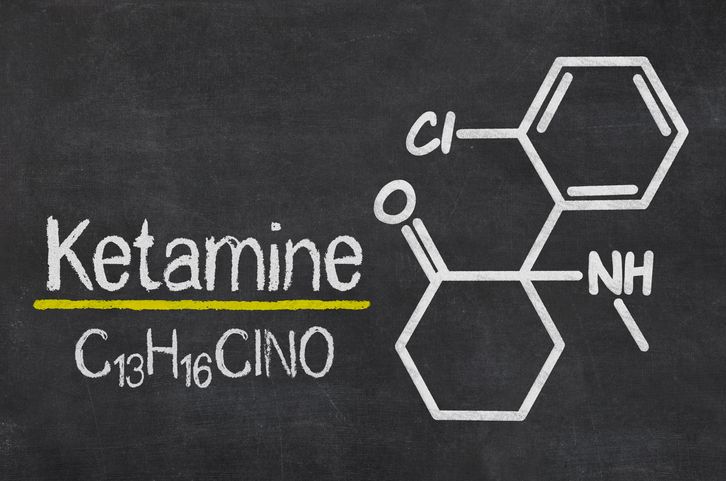Ketamine is most commonly known for its use as an operating room anesthetic. But in recent years, a growing number of researchers, mental health professionals, and even patients have begun to discuss the ways in which Ketamine may be able to help those suffering from debilitating mental health conditions and/or chronic pain.
The use of Ketamine for depression, anxiety, PTSD and chronic pain has created opportunities for people who might otherwise be unable to find effective treatment options.
Here is more information if you are considering Ketamine treatment as an option for yourself or a loved one.
What is Ketamine?
Ketamine is a medication that doctors use as a general anesthetic, specifically for medical procedures in which muscle relaxation is not required. Unlike other anesthetics, it has minimal effects on the respiratory system making it an attractive anesthetic for very short procedures.
It is categorized as a Schedule III non-narcotic and FDA-approved as a general anesthetic.
In addition to using Ketamine as an anesthetic, doctors may also prescribe it for “off-label” use. “Off-label” use allows licensed medical professionals to provide patients with an FDA-approved substance, but for uses that have yet to be officially approved by the agency. There are many medications that have well-known and well-documented off-label uses, including Ketamine.

Mental health professionals sometimes use low-dose Ketamine treatments to help reduce the symptoms of treatment-resistant depression, anxiety, PTSD and chronic pain. Presently, Ketamine for mental health treatments is still considered “off-label” use, though advocates are hopeful it will gain approval soon.

The Effects of Ketamine
Ketamine is a dissociative anesthetic - it is used to induce a dream-like state of consciousness. The effects of low-dose Ketamine can be calming helping to reduce anxiety and reduced awareness of pain, which is largely why it has been used in healthcare clinics and operating rooms for many years.
Ketamine effects can also include altered perceptions of sights and sounds. In many cases, Ketamine therapy relies on low doses of Ketamine to trigger short periods of psychedelic effects, generally accompanied by complementary treatments such as counseling. The dream like state or experiential effects of ketamine allow individuals to create new frameworks of thinking which allow them to heal from their chronic depression, PTSD and pain. Many individuals report feeling calm, sense of euphoria and an ability to connect with the world around them within hours to 1-2 days post treatment.
The Origin and History of Ketamine
Ketamine originated as an anesthetic for animals in the 1960s, quickly gaining FDA approval for use in people in 1970. During the Vietnam War, it was frequently used to administer battlefield treatments for injured soldiers.
Because Ketamine doesn’t have an effect on a patient’s breathing, it can be safely used without need for a ventilator. This unique quality quickly earned Ketamine distinction as an excellent option for use by emergency responders.
How is Ketamine Used?
Medically, Ketamine is FDA-approved as a general anesthetic. There are also many off label uses for Ketamine, including:
In an emergency department setting, Ketamine can be used for rapid, short-term sedation for:
- Treating dislocated joints
- Reducing fractures
- Treating wounds in children and other potentially uncooperative patients
Ketamine may be used in low doses to reduce severe pain from:
- Lower back pain
- Arm or leg pain
- Abdominal pain
- Fractures
- Trauma
Ongoing research is exploring Ketamine for treating status epilepticus, a medical condition in which a person experiences either a seizure lasting more than 5 minutes or multiple seizures in a 5-minute span. Ketamine has been found to very effective for this condition.
- Ketamine may be effective as a depression treatment for individuals who have not responded well to other treatment options. When a person is diagnosed with “treatment-resistant depression,” meaning that their symptoms have not been effectively mitigated with antidepressants and other methods, their doctor may suggest Ketamine therapy.
- Studies have also shown Ketamine to be a potential treatment for individuals with anxiety disorder, including social anxiety disorder (SAD).
Ketamine for Depression, Anxiety, PTSD, & Chronic Pain
Although there is still ongoing research into Ketamine for mental health, a growing number of patients report life-changing experiences with Ketamine therapy.
During Ketamine therapy, an individual may experience some mild dissociative effects. However, the possible benefits aren’t limited to the time spent in the treatment room. Mental health professionals believe that the treatment may be able to support the rebuilding of critical connections in the brain. When combined with therapy, Ketamine treatment could be a key factor in helping the brain “learn” to change. After completing a course of treatment, many patients describe feeling that they finally made progress in their efforts to recover from depression, anxiety and PTSD.

How Can Ketamine Therapy in South Jersey Help You?
Interested in learning how Ketamine may be able to support your wellness goals? The expert professionals at Alternativ Total Wellness are available to answer your treatment questions and provide details about using Ketamine for your specific needs.

